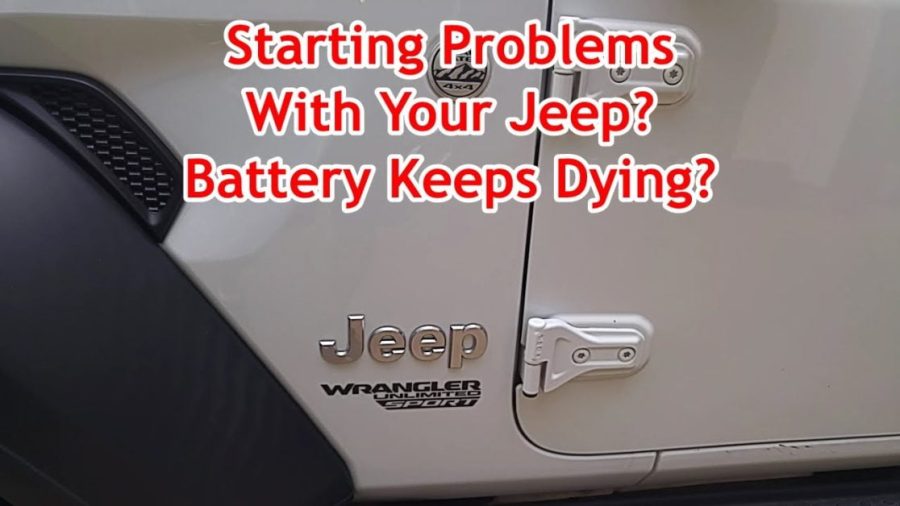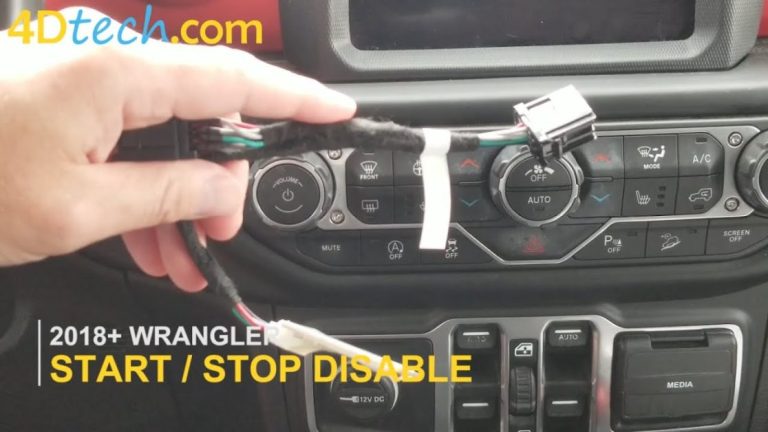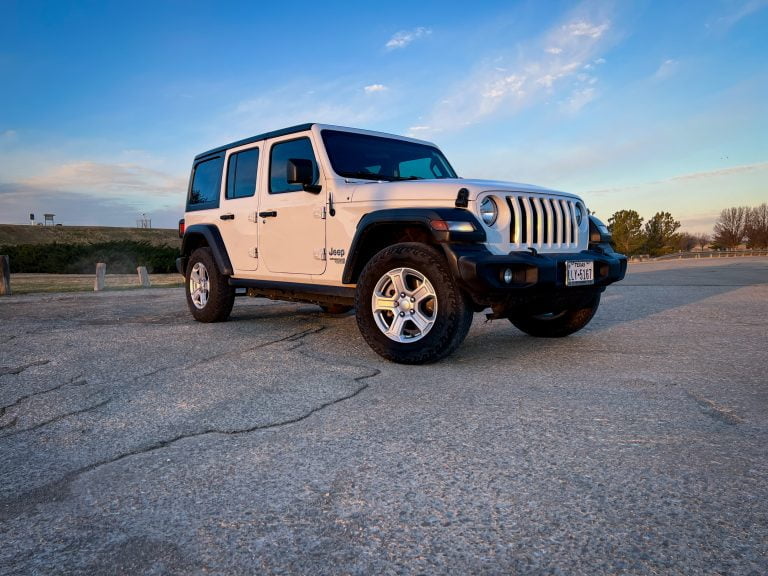Why does my Jeep battery keep dying unexpectedly?

Have you ever found yourself in the frustrating situation of a dead car battery?
You’re in a rush, ready to hit the road, and your trusty Jeep refuses to start.
But why does this keep happening?
In this article, we explore the various factors that can drain your Jeep’s battery and provide some insightful tips on how to prevent this recurring issue.
Stay tuned to uncover the mysteries behind your mysteriously dying Jeep battery!
why does my jeep battery keep dying
There are several reasons why your Jeep battery may keep dying.
Some common causes include leaving lights on, parasitic draw from stereo components and plugged-in devices, loose or corroded connections, excessive heat and cold, issues with the alternator, quick trips or leaving the car parked for too long, and age.
Factors such as frequency of vehicle start, distance driven, health of the alternator, and hot and cold conditions in your region can also affect battery lifespan.
To prevent battery drain, it is recommended to check electrical components or charging systems at a mechanic or service center and park the vehicle in a garage or under a shelter on hot summer days.
Additionally, taking a 15-minute drive once a week can help maintain the battery’s state of charge.
If the battery dies regularly, it may need to be replaced or the alternator may need to be repaired.
Working with a trusted team of experts can help diagnose and solve the issue.
Key Points:
- Common causes of a Jeep battery dying include:
- Leaving lights on
- Parasitic draw from stereo components and plugged-in devices
- Loose or corroded connections
- Excessive heat and cold
- Issues with the alternator
- Quick trips or leaving the car parked for too long
Age
Factors that can affect battery lifespan include:
- Frequency of vehicle start
- Distance driven
- Health of the alternator
Hot and cold conditions
To prevent battery drain, it is recommended to:
- Check electrical components or charging systems at a mechanic or service center
Park the vehicle in a garage or under a shelter on hot summer days
Taking a 15-minute drive once a week can help maintain the battery’s state of charge
Regular battery drainage may require battery replacement or alternator repair
Working with a trusted team of experts can help diagnose and solve the issue.
Check this out:
💡 Did You Know?
1. Contrary to popular belief, leaving your Jeep’s battery disconnected for extended periods of time can actually cause it to die faster. This is because modern vehicles have various systems that constantly draw a small amount of power, even when the engine is off. Disconnecting the battery interrupts the charging process, leading to a faster drainage of its energy.
2. Extreme weather conditions, such as excessive heat or cold, can significantly impact the lifespan of your Jeep’s battery. High temperatures can accelerate the chemical reactions within the battery, causing it to lose capacity over time. On the other hand, freezing temperatures reduce the battery’s ability to provide sufficient power, making it more prone to dying.
3. Using power-hungry accessories like winches or high-output audio systems for extended periods without the engine running can drain your Jeep’s battery faster than normal. These accessories draw a substantial amount of power, placing a strain on the battery and potentially leading to a quicker depletion of its energy.
4. If you only use your Jeep for short trips or infrequently, it can contribute to a dying battery. This is because short drives don’t allow enough time for the vehicle’s alternator to fully recharge the battery. Over time, this can lead to a gradual drain and eventual battery failure.
5. An often overlooked factor is simply the age of the battery. On average, a car battery will last around three to five years, depending on various factors. If your Jeep’s battery keeps dying, it may be a sign that it has reached the end of its useful life and needs to be replaced.
Car Battery Dying: Common Causes And Prevention
Car batteries are essential for any vehicle as they provide power for starting the car, running electronics, and maintaining computer memory. However, there are several common causes that can lead to the frustrating experience of a dead battery. Understanding these causes and taking preventive measures can help ensure that your Jeep’s battery remains in optimal condition.
One of the most common causes of a dead car battery is leaving lights on. Whether it’s the headlights, interior lights, or trunk lights, forgetting to turn them off can quickly drain the battery. Additionally, the parasitic draw from stereo components and plugged-in devices such as phone chargers can also contribute to battery drain, even when the car is turned off. To prevent this, it is important to make a habit of checking all electrical components and charging systems before leaving your vehicle.
Another common cause of battery failure is loose or corroded connections. Over time, the battery terminals can become loose or covered in corrosion, which can interfere with the battery’s ability to hold a charge. Regularly checking and cleaning the battery terminals with a mixture of one part baking soda to three parts water and a stiff-bristle brush can help prevent this issue.
Excessive heat and cold can also play a role in battery deterioration. High temperatures can accelerate the chemical reactions inside the battery, causing it to degrade faster. On the other hand, extremely cold temperatures can reduce the battery’s power output, making it more difficult to start the car in the winter. To mitigate these effects, it is advisable to park the vehicle in a garage or under shelter during hot summer days and to be aware of the battery’s performance in colder weather.
Impact Of Weather Conditions On Car Battery Health
Weather conditions have a significant impact on the health and performance of car batteries. Excessive heat can accelerate the battery’s chemical reactions, causing it to deteriorate faster. On the other hand, extremely cold temperatures can reduce the battery’s power output, making it more difficult to start the car in the winter.
In regions with hot climates, it is crucial to take extra precautions to protect the battery. Parking the vehicle in a garage or under a shelter on hot summer days can help prevent excessive heat from degrading the battery. Additionally, regular inspection and maintenance of the battery’s connections and terminals can help identify any issues that may be aggravated by heat.
In colder regions, it is important to be aware of how the battery performs in low temperatures. If the battery struggles to start the car during the winter, it may be an indication that it is nearing the end of its lifespan. Taking preventive measures such as keeping the battery terminals clean and ensuring proper insulation can help optimize performance in cold conditions.
- Park the vehicle in a garage or under a shelter on hot summer days
- Regularly inspect and maintain the battery’s connections and terminals
- Keep the battery terminals clean
- Ensure proper insulation
Short Trips And Extended Parked Periods: Battery Trouble
Short trips and extended periods of inactivity can contribute to battery issues in your Jeep. Engaging in quick trips that are less than 15 minutes in length can degrade the battery over time. The reason behind this is that starting the car consumes a significant amount of energy from the battery, and frequent short trips do not allow sufficient time for the alternator to recharge the battery fully.
Similarly, leaving the car parked for weeks or months without starting or driving it can also lead to a dead battery. When a vehicle is not in use, the battery slowly loses its charge due to natural self-discharge and the electrical load of keeping the computer memory and other electronics active.
To prevent this, it is advisable to take the car for a 15-minute drive once a week to help maintain the battery’s state of charge, as long as the alternator is working correctly.
Factors Affecting Car Battery Lifespan
Factors Affecting the Lifespan of a Car Battery in a Jeep:
The frequency of vehicle starts is a key factor in battery lifespan. Each time the car is started, a significant amount of energy is drawn from the battery, potentially shortening its lifespan.
The distance driven also impacts battery lifespan. Longer trips allow the alternator more time to fully recharge the battery, extending its lifespan. On the other hand, short trips do not provide enough time for the alternator to recharge the battery fully, resulting in increased wear and a shorter lifespan.
Extreme hot and cold conditions in the region where the vehicle is driven can also impact battery health. High temperatures can accelerate battery deterioration, while very cold temperatures can reduce the battery’s power output.
It is important to understand the climate in which your Jeep operates and take appropriate precautions to optimize battery performance and lifespan.
Regular maintenance, such as cleaning the battery terminals and checking the battery’s charge, can also improve battery lifespan.
Using accessories and electrical components sparingly can help reduce the strain on the battery and prolong its lifespan.
Investing in a high-quality battery and following the manufacturer’s guidelines for usage and maintenance can also contribute to a longer battery lifespan.
Keep in mind that individual driving habits and maintenance practices can influence battery lifespan as well.
Factors impacting car battery lifespan in a Jeep:
- Frequency of vehicle starts
- Distance driven
- Extreme hot and cold conditions
- Regular maintenance
- Using accessories sparingly
- Investing in a high-quality battery
- Following manufacturer’s guidelines
Tips To Prevent Battery Drain And Maintain Charge
To prevent battery drain and maintain optimal charge, consider the following tips:
Regularly check electrical components and charging systems by consulting a mechanic or service center specializing in battery inspections and maintenance.
Park your vehicle in a garage or under a shelter on hot summer days to prevent excessive heat from affecting the battery.
Take your car for a 15-minute drive once a week to help maintain the battery’s state of charge. Ensure that the alternator is functioning correctly, as a faulty alternator can do more harm than good.
Turn off headlights completely, even if they are equipped with an automatic off function. Some vehicles have headlights that remain partially illuminated, leading to a slow drain on the battery. Turning them off completely can help preserve battery life.
Remember, taking these preventive measures can extend the lifespan of your Jeep’s battery and minimize unexpected power loss.
Unexpected Culprits: Stereo Components And Phone Chargers
Stereo components and phone chargers can be unexpected culprits behind a dying car battery.
When the car is turned off, stereo components and accessories that are still connected can continue to draw power from the battery. Over time, this continuous drain can deplete the battery’s charge, resulting in a dead battery when you try to start the car.
To prevent this, it is essential to ensure that all connected devices are turned off before exiting the vehicle. Additionally, it is recommended to unplug phone chargers or other electronic devices when the car is not in use.
By taking these simple precautions, you can avoid draining the battery unnecessarily.
Tips to prevent battery drain include:
- Turn off all connected devices before exiting the vehicle.
- Unplug phone chargers and other electronic devices when the car is not in use.
“Continuous drain from stereo components and phone chargers can lead to a dead car battery. Take the necessary steps to prevent this.”
Lights That Drain: Glove-Box, Trunk, And Interior Lights
Lights that remain illuminated can contribute to battery drain. Glove-box lights, trunk lights, and interior lights can inadvertently be left on, either by accident or due to malfunctioning switches. Over time, these lights can draw power from the battery and deplete its charge.
Regularly checking that all lights are turned off before leaving the vehicle can help prevent this issue. If you notice that any of these lights remain illuminated, it is important to investigate and address the underlying cause. In some cases, it may be a simple matter of replacing a faulty switch or bulb. By taking prompt action, you can avoid draining the battery and ensure its longevity.
Taking Action: Cleaning Battery Terminals And Seeking Professional Help
Proper maintenance of the battery terminals is crucial to keep your Jeep’s battery in good condition. Over time, the battery terminals can become loose or corroded, hindering the battery’s ability to hold a charge. Regularly cleaning the battery terminals can help prevent battery drain and potential damage to the battery.
To clean the battery terminals, create a mixture of one part baking soda to three parts water in a container. Dip a stiff-bristle brush into the mixture and scrub the battery terminals to remove any corrosion. Once the terminals are clean, rinse them thoroughly with water and dry them before reconnecting.
If you encounter persistent battery issues despite taking preventive measures, it may be necessary to seek professional help. Consulting a trusted team of experts, such as those at Les Schwab, can provide you with a comprehensive inspection and assistance with your Jeep’s battery. Their expertise can help identify any underlying problems and provide solutions to keep your battery in optimal condition.
Don’t hesitate to contact the team to schedule a service appointment or ask any questions you may have. By working together with professionals, you can ensure that your Jeep’s battery remains reliable and avoid unexpected power loss.
FAQ
What is draining my car battery when its off?
One potential culprit that could be draining your car battery when it’s off is a faulty alternator. When your car is running, the alternator charges the battery, but if it’s malfunctioning, it may continue to draw power even when the engine is turned off, slowly draining the battery over time. Another possibility could be a parasitic draw, which occurs when certain electrical components in the car, such as a malfunctioning power window switch or a faulty alarm system, continue to draw power even when the car is not in use. Identifying and repairing these issues can help prevent unnecessary battery drain and ensure the longevity of your battery.
Why does my Jeep battery keep draining?
There are a few potential reasons for your Jeep battery to keep draining. Firstly, it is important to inspect all wires for any signs of corrosion or loose connections to both the battery and alternator. Such issues can hinder the proper flow of electricity, leading to battery drainage. Secondly, it is advisable to have both the battery and alternator tested to ensure they are functioning optimally. Sometimes, even new batteries may have premature cell failure, which can result in power drainage. Lastly, it is worth investigating if any accessories are inadvertently left on, as they can continue to draw power after the ignition key is removed.
How do I know if my alternator is draining my battery?
To determine if your alternator is draining your battery, you can conduct a simple test. Start by using a multimeter to measure the amperage draw on your battery. Probe the negative battery cable with the red lead of the multimeter and adjust the settings until it detects amperage. If you notice a significant draw of more than 50 milliamps, it indicates the presence of a parasitic load in your car.
To isolate the alternator as the potential culprit, you can further investigate by removing the alternator fuse and then rechecking for any remaining draw. If the draw significantly decreases or disappears altogether after removing the alternator fuse, it suggests that the alternator might be the source of the battery drain.
Why does my car battery keep dying if the battery is good?
While a good battery can generally provide reliable performance, several factors can contribute to a car battery constantly dying. One possible explanation could be that there is a parasitic electrical drain in the vehicle. This occurs when certain components or accessories in the car continue to draw power even when the engine is not running, resulting in a drained battery over time. Another possibility is that the charging system or alternator, responsible for replenishing the battery’s charge, is not functioning correctly. If the alternator fails to generate enough power to recharge the battery adequately, it may lead to frequent battery drain. In these cases, it would be prudent to have a professional diagnose and address the specific issue to resolve the recurring battery problems.


